From the Archives: Billy Graham & Corrie ten Boom
December 27, 2021
Categories: The Archive Collection
Categories: The Archive Collection
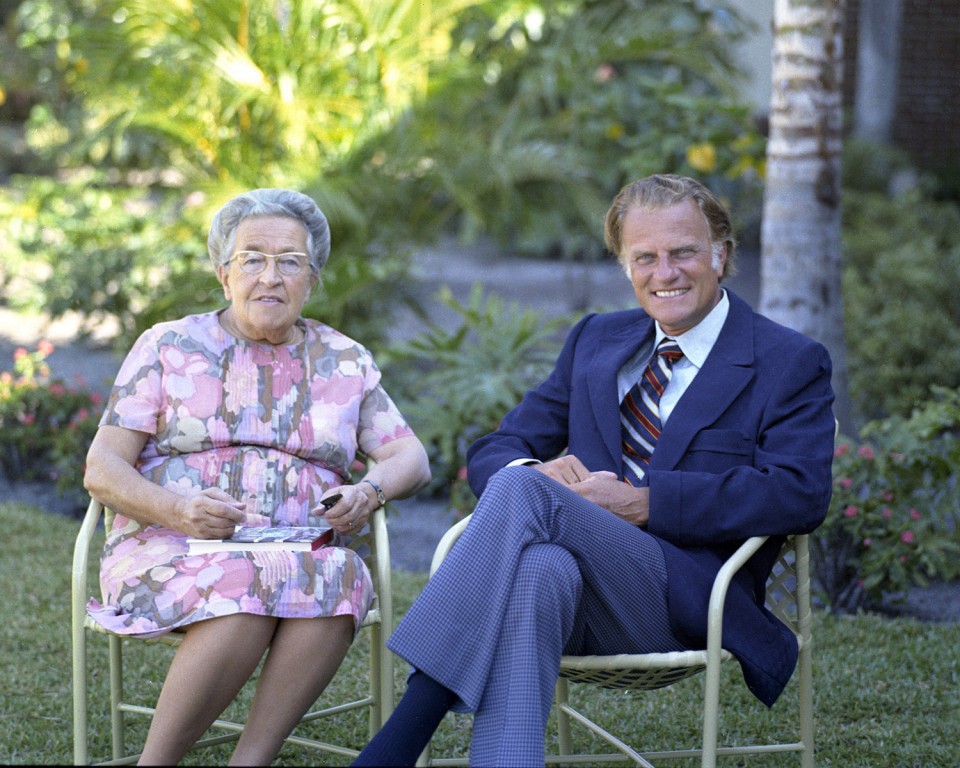
Corrie ten Boom met Billy and Ruth Graham in 1960 in Switzerland. Mr. Graham had a crusade in Switzerland that crossed several cities from mid-August through early September and an opportunity opened for them to meet.
The youngest of four children, Corrie ten Boom was born on April 15, 1892, near Haarlem in the Netherlands. Her father, Casper ten Boom, was a well-liked watch repairman, and often referred to as “Haarlem’s Grand Old Man.”
During the Second World War, the ten Boom home became a refuge and a hiding place for fugitives and those hunted by the Nazis. By protecting these people, Casper and his daughters, Corrie and Betsie, risked their lives. They were arrested and put into a concentration camp where the ten Boom family members clung to their faith in Christ during their ordeal.
The true story of the family’s plight is told in The Hiding Place, the most popular film produced by World Wide Pictures—the motion-picture ministry of the Billy Graham Evangelistic Association. The film is based on Corrie ten Boom’s best-selling book.
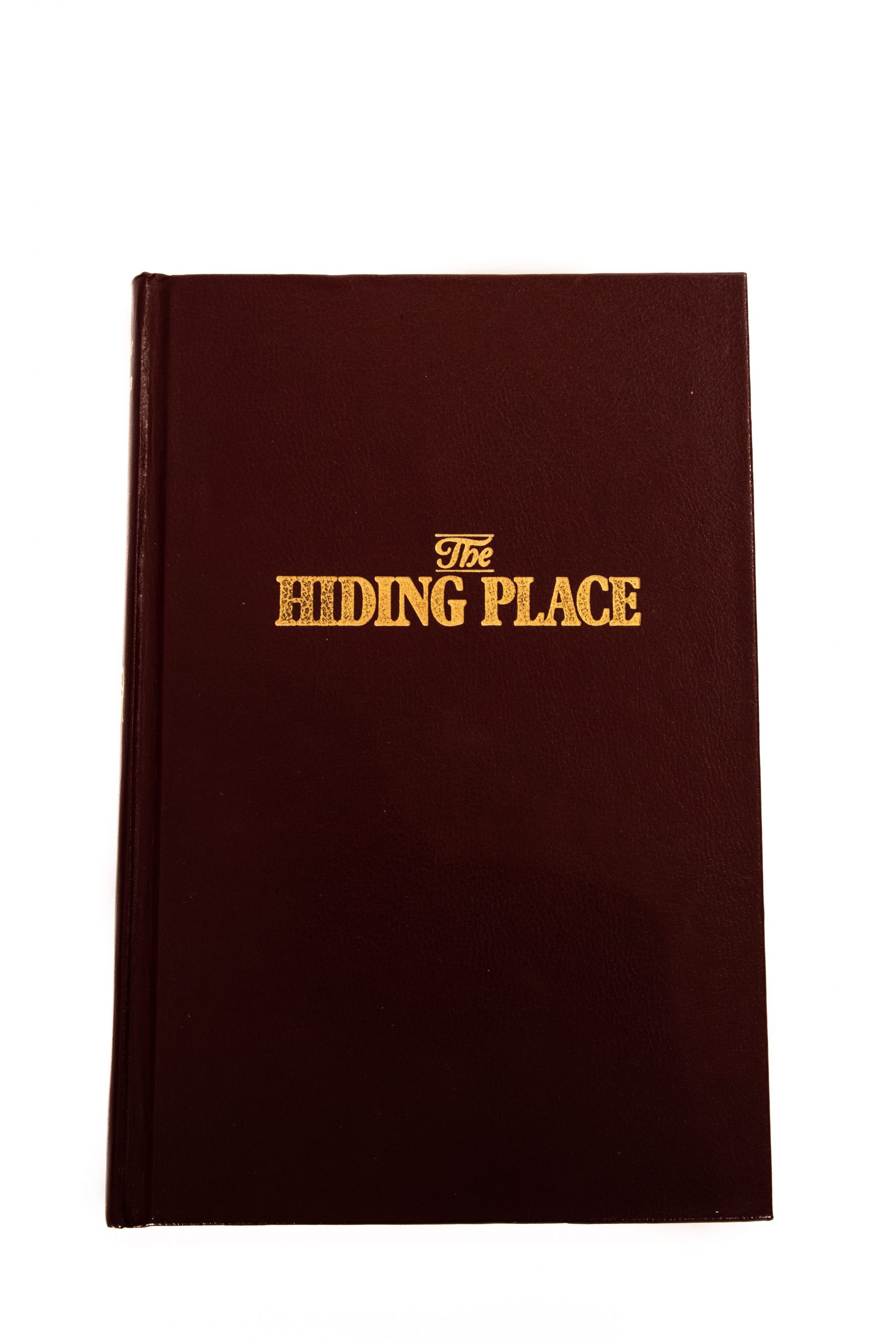
“The Hiding Place” details the incredible, heroic story of Corrie ten Boom and her family, who worked with the underground resistance in Holland against the occupying Nazi army, providing a “hiding place” in their home for fleeing Jews. Ultimately, the ten Boom family is betrayed and sent to Nazi concentration camps.
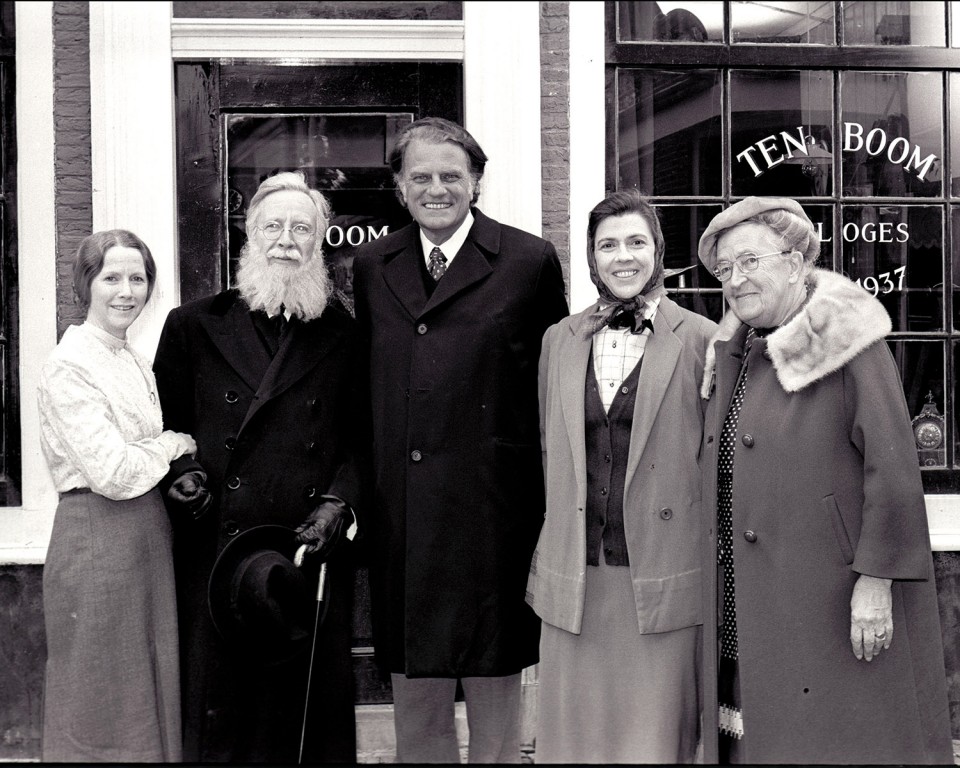
This particular copy of the book was given to Billy Graham on September 29, 1975, by Corrie Ten Boom at the world premiere screening of The Hiding Place in Beverly Hills, California. It was the 3 millionth copy sold. The book and film tell the story of Holocaust survivor Corrie ten Boom and her family in the years leading up to and during World War II. Their faithful and courageous efforts to save the lives of Jewish families pre-war ultimately landed them in one of the worst Nazi concentration camps. The Hiding Place is the most requested production released by World Wide Pictures.
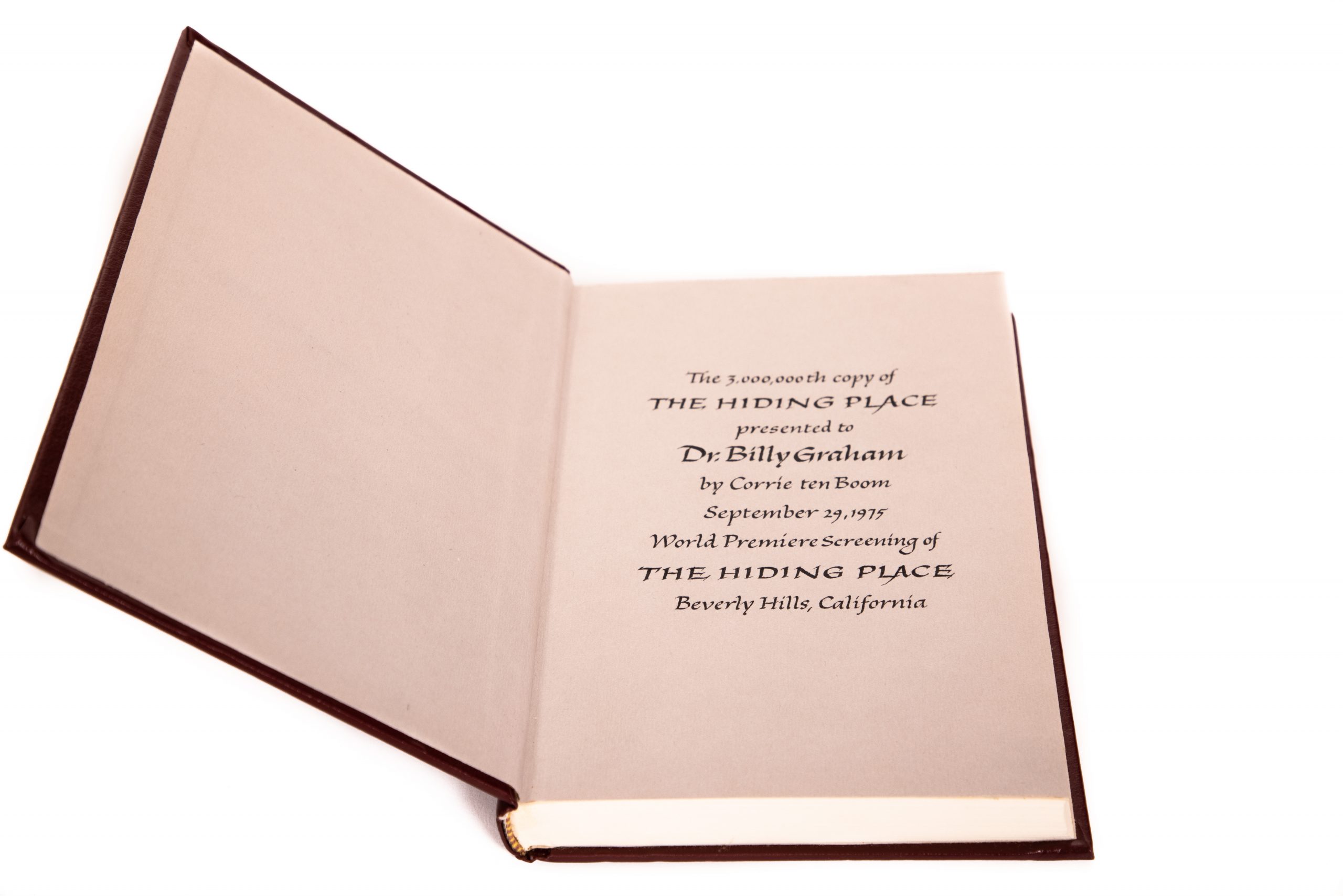
In his autobiography, Just As I Am, Billy Graham talked about Corrie and the film: “Corrie is one of the great Christian heroines of the century. We met her in Switzerland, and her story made such an impression on Ruth that she recommended it to writers John and Elizabeth Sherrill. They jumped at it; and the book and film that followed brought home the horror of those days and the triumph of Christ’s love in the midst of virulent hatred.”
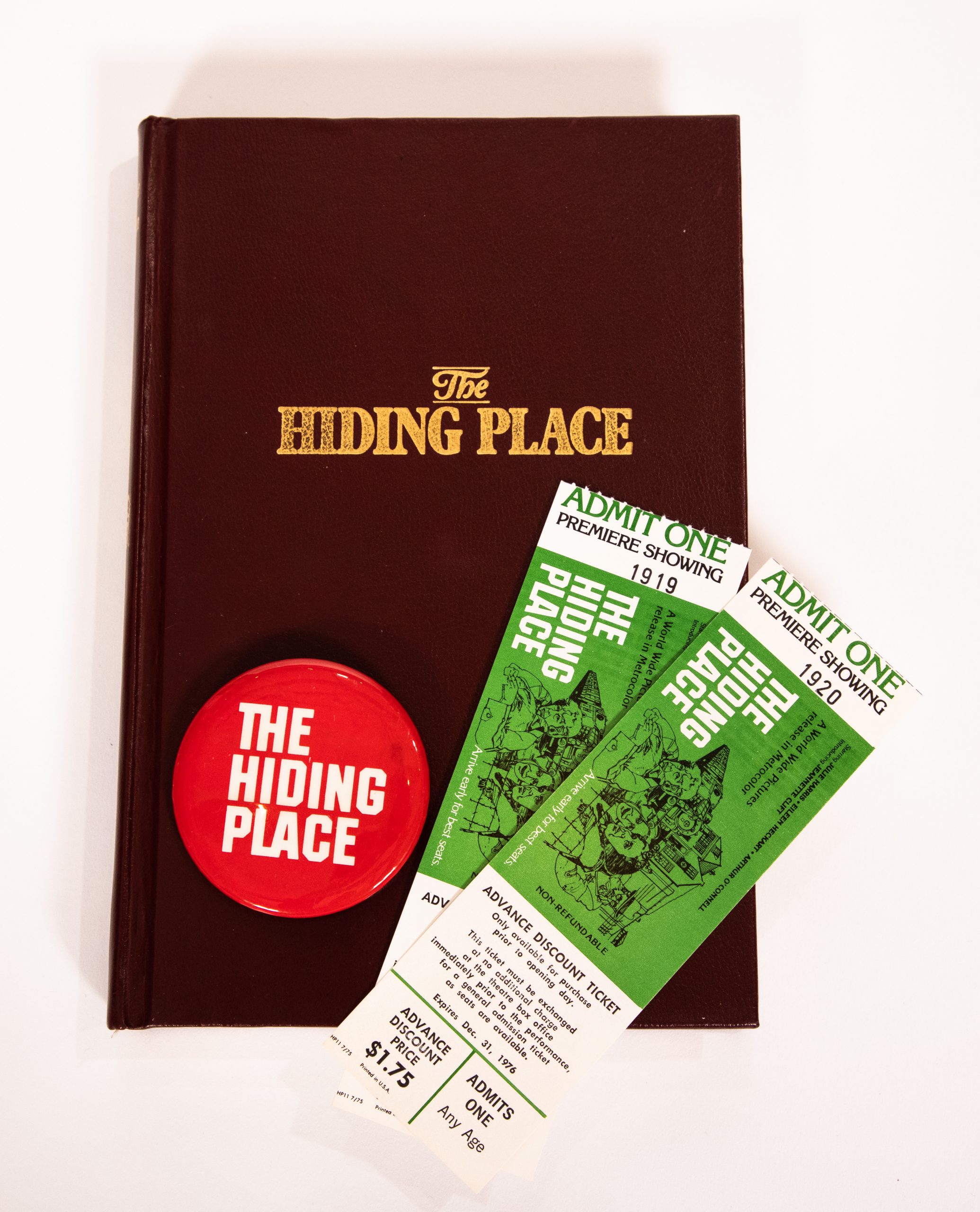
Rev. Graham wrote about an incident from the film’s 1975 world premiere at the Beverly Theater in Los Angeles, “Shortly before the film was to start someone threw a tear-gas canister into the theater, forcing the crowd to evacuate. The showing had to be postponed. We held an impromptu street meeting out in front while the police and fire departments attempted to find out what had happened. I spoke to the crowd and prayed.”

At a reception later that evening, ten Boom commented on the horrific event: “People asked me tonight, ‘What did you feel about this [tear-gas] bomb that was falling?’ I was touched. I was sad. Do you know why? Not only because there was in some way disappointment for people who had hoped to see the film but because on that bomb was the Hakenkreuz, the [Nazi] swastika.”
“What we have to do,” said ten Boom, “is love these people who hate us—love them, pray for them. These people are wounded people who have hate in their hearts. They need forgiveness. They need the Lord. That is the answer we must give.”
In God’s providence, said Rev. Graham, the furor over the tear-gas canister created enormous interest in the film. “It premiered the following night without incident and has become the most widely seen motion picture we’ve ever produced.”
Come and experience familiar sights of Billy Graham’s Crusades at the Billy Graham Library. The Journey of Faith tour tells the story of a dairy farmer who came to be the “Pastor to Presidents.” Plan your visit today.